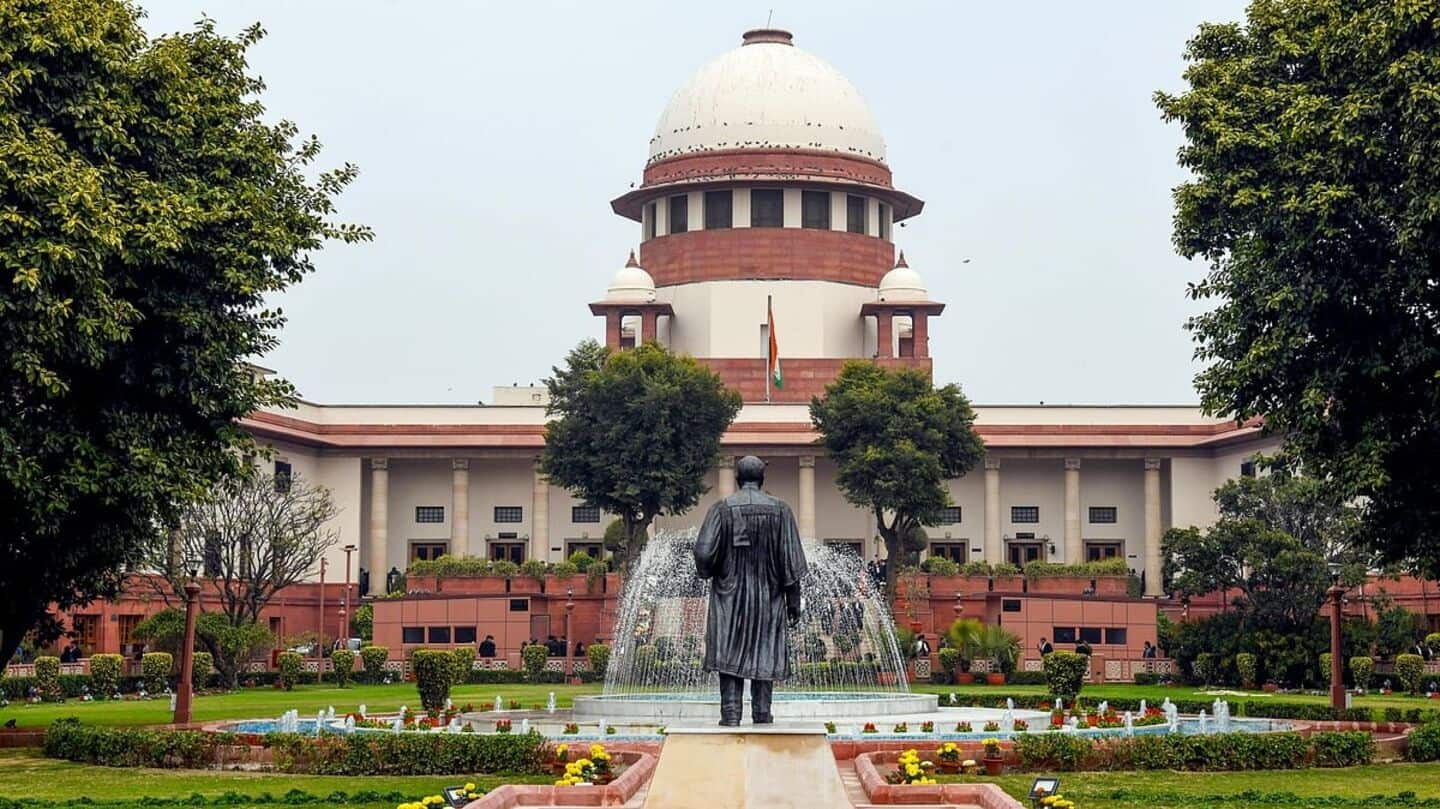
Owaisi files petition against Waqf Amendment Bill in Supreme Court
What's the story
Asaduddin Owaisi, MP from Hyderabad in the Lok Sabha, has moved the Supreme Court with a writ petition. He challenged the constitutionality of the Waqf (Amendment) Bill, 2025.
Owaisi claims the amendment violates Muslims's constitutional rights to administer their own religious matters.
It violates several articles of the Indian Constitution and is manifestly arbitrary, he claimed.
Minority rights
Owaisi argues that the bill undermines waqf rights
Owaisi's petition argues that the Waqf (Amendment) Bill, 2025, is a departure from the trend of providing more protections to the Muslim community rights under Articles 25 and 26 of the Constitution.
It claims it dilutes the protections for waqfs, undermining minority community rights over their properties.
The amendment also allegedly increases state interference in waqf administration.
Hostile discrimination
Owaisi accuses the bill of discriminatory practices
The petition has also alleged that the amendment has taken away certain protections previously provided to waqfs while retaining them for Hindu, Jain, and Sikh religious and charitable endowments.
Owaisi argues that this selective removal amounts to hostile discrimination against Muslims.
This is a violation of Articles 14 and 15 of the Constitution, which prohibit discrimination on the basis of religion, he asserts.
Constitutional challenge
Specific clauses of the bill are under scrutiny
Owaisi has particularly challenged the constitutional validity of several clauses in the 2025 Act.
He says these clauses put unconstitutional fetters on who can create a waqf.
By this clause, a person has to be a practicing Muslim for five years to create a Waqf, which he says goes against the existing Muslim Personal Law (Shariat) Application Act, 1937.
Waqf creation
Owaisi's petition highlights concerns about waqf creation
Owaisi's petition states that making it mandatory for a waqif to prove his adherence to Islam for five years violates constitutional protections under Articles 14, 15, and 300A.
The amendment also added an additional requirement of the waqif "demonstrating" his practice of Islam for at least five years, which Owaisi argues puts a third-party authority in a position to judge a citizen's faith.
This undermines Article 25, according to him.
Historical context
Islamic law and waqf creation
The petition also points out that Islamic law traditionally permitted even non-Muslims to dedicate property as waqf.
This provision was adopted in the Waqf Act, 1995; an amendment in 2013 replaced "by a person professing Islam" with "by any person."
Owaisi argues clauses 3(ix)(a) and 3(ix)(d) of the Amendment Act are unconstitutional as they undo years of progress and evolution of waqf legislation.
Legal precedent
Owaisi's petition challenges waqf by user principle
The petition also challenges the amendment's insistence on proving there's no 'contrivance' in the dedication of property.
Owaisi argues it provides vague, subjective grounds for authority to annul a property dedication, which doesn't exist in the laws of other religions.
The principle of waqf by user is a well-established rule under Islamic jurisprudence upheld by the Supreme Court, Owaisi's petition states.
Waqf Board
Inclusion of non-Muslim members in Waqf Board
Owaisi's petition also questions the presence of non-Muslim members in the Central Waqf Council and State Waqf Boards.
He says it dilutes the autonomy of the Muslim community to manage properties dedicated to their religious and charitable purposes.
According to the petition, these amendments effectively strip the Muslim community of its right to manage its own religious institutions, in violation of Articles 14, 15, 25, and 26 of the Constitution.